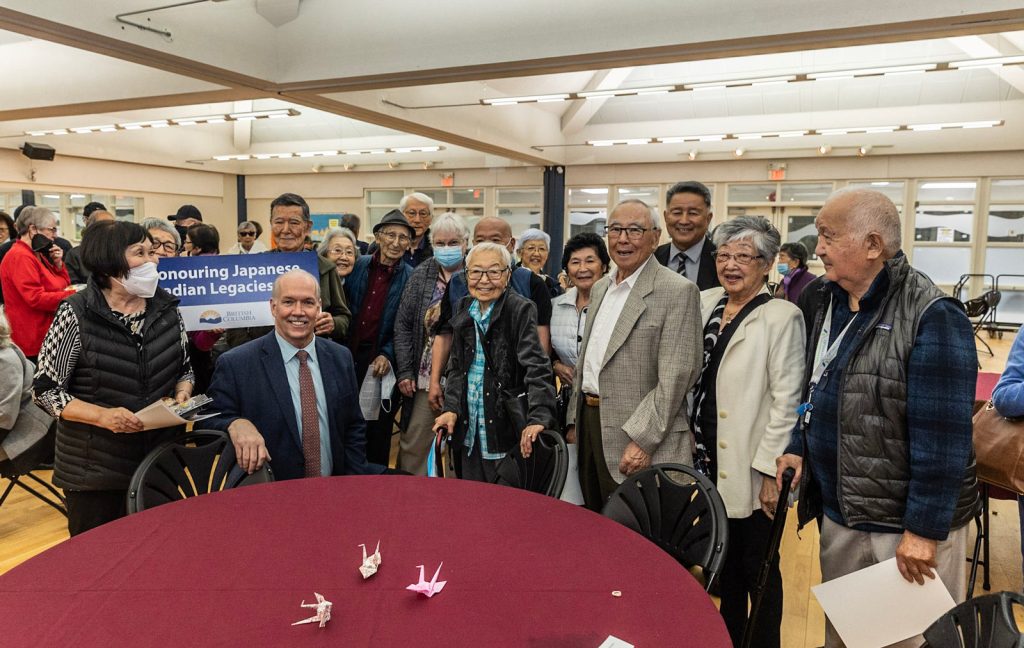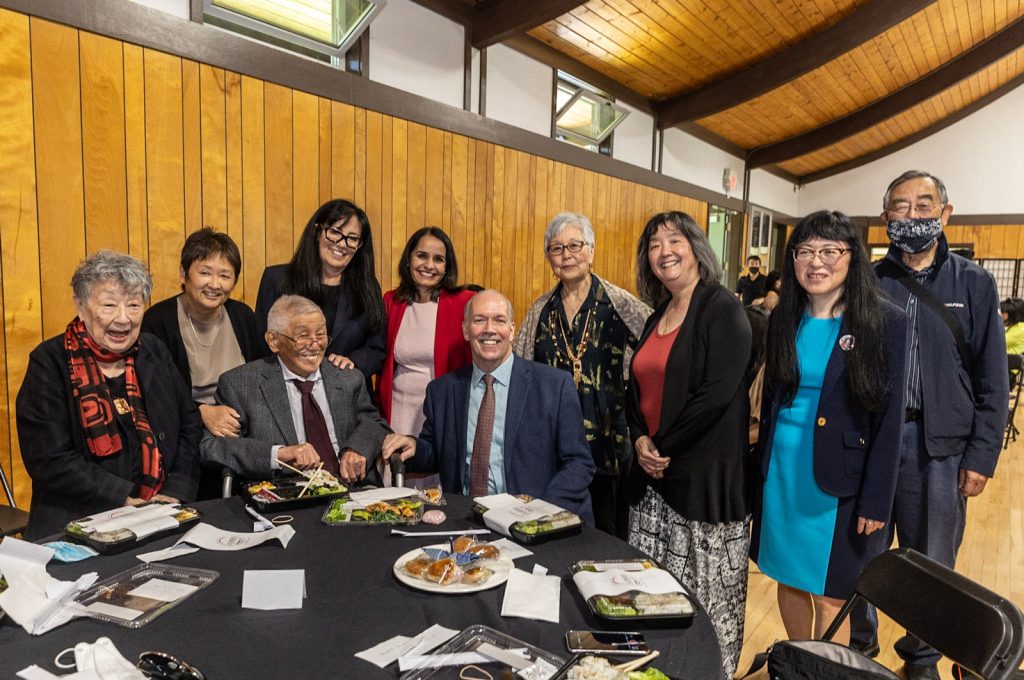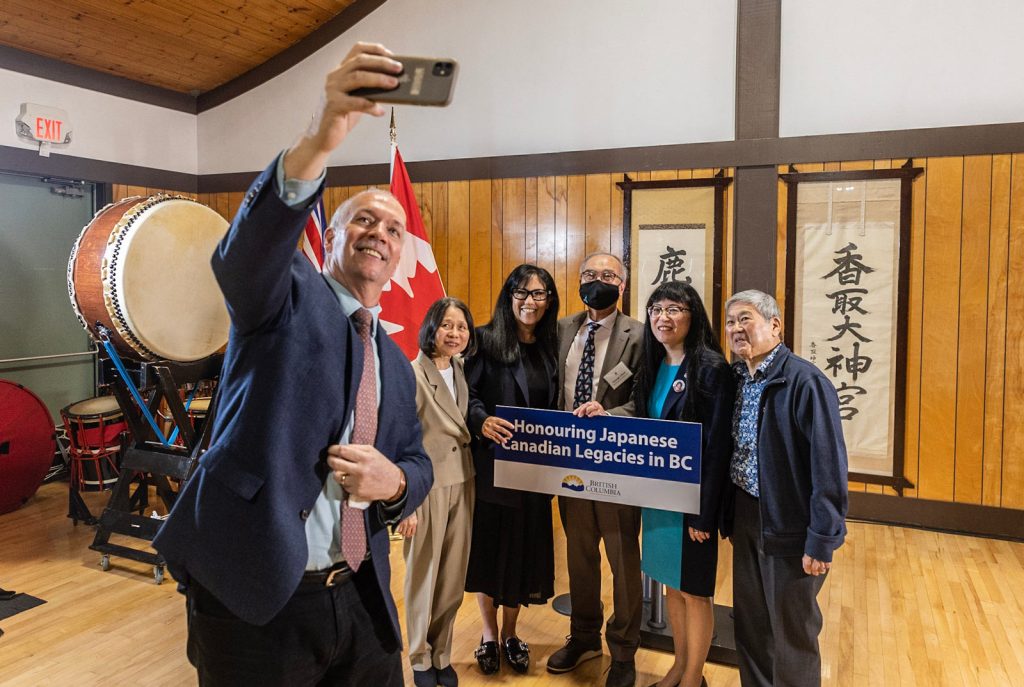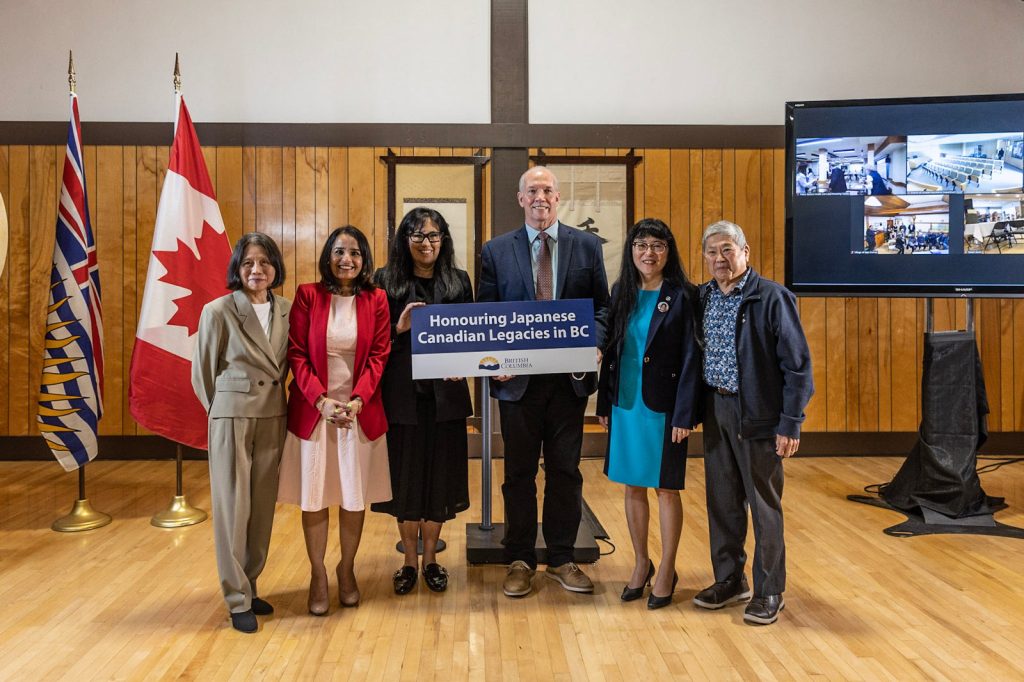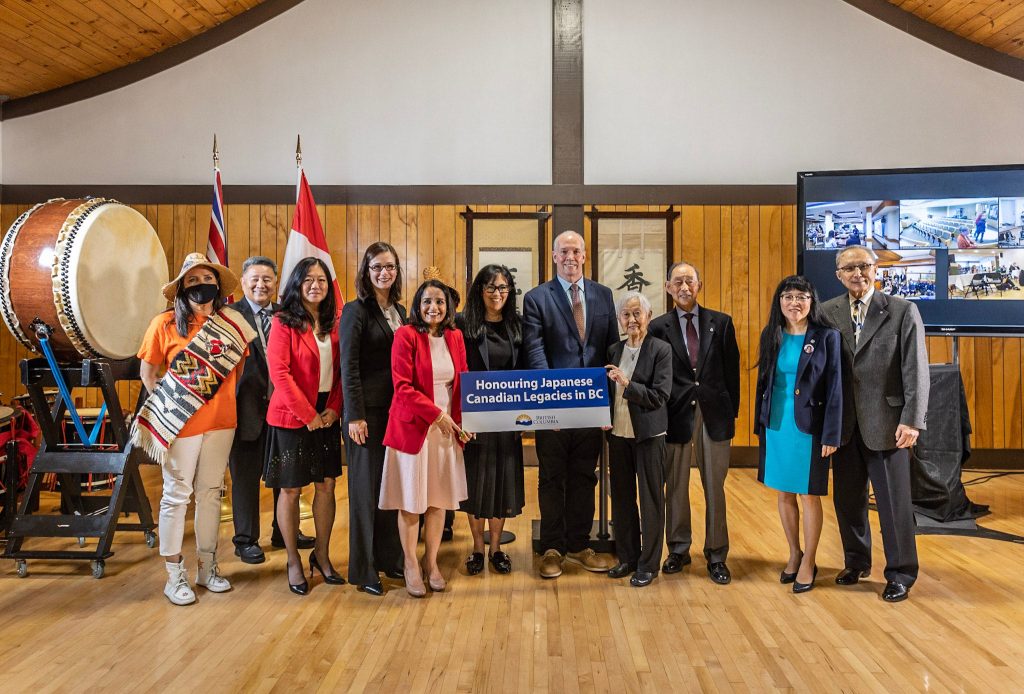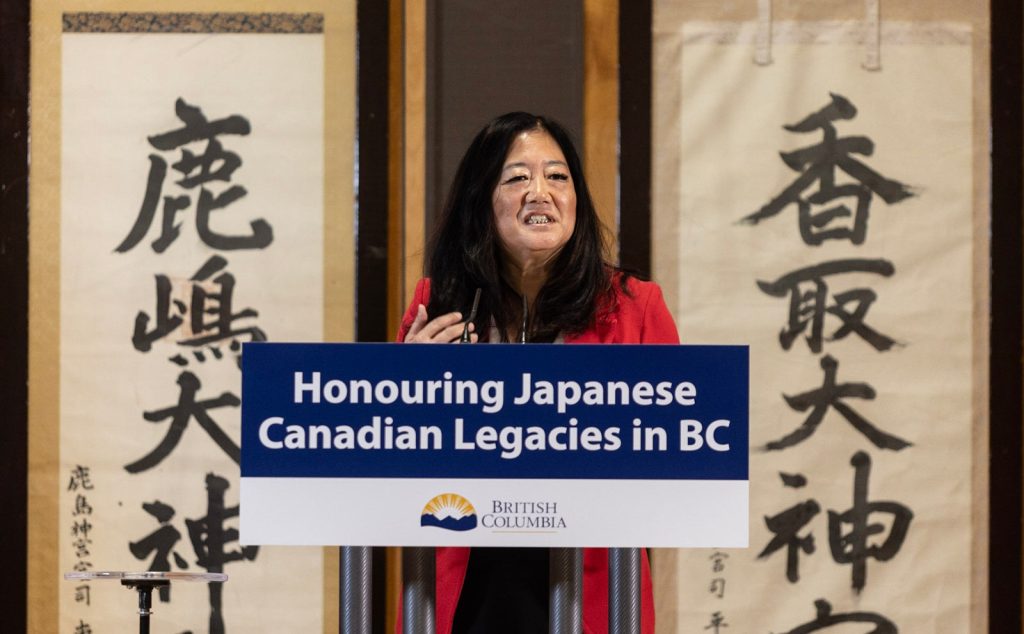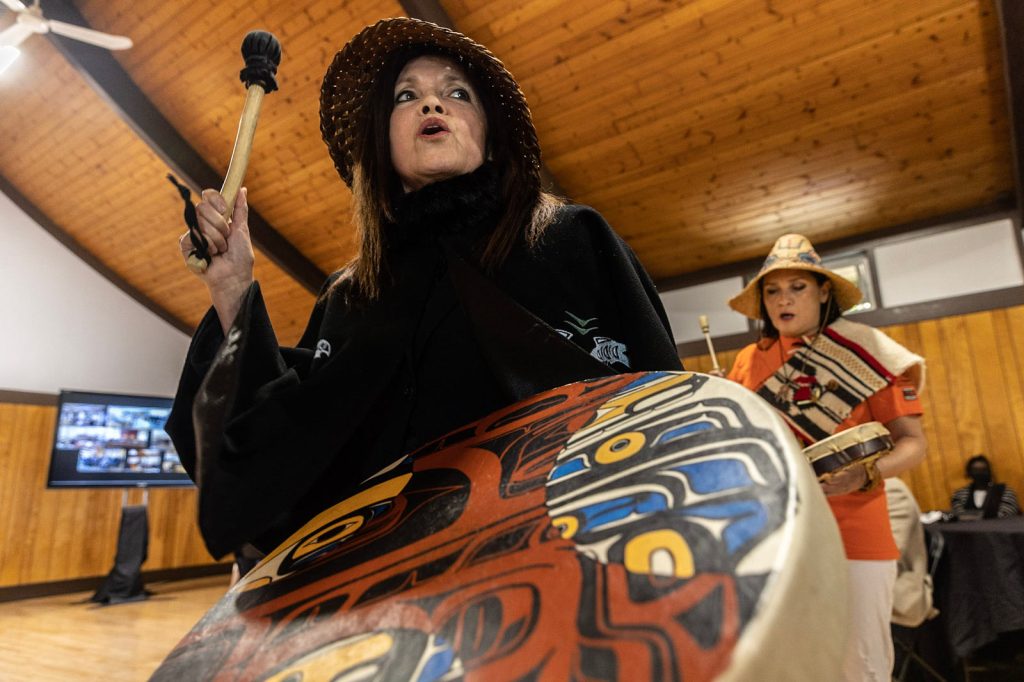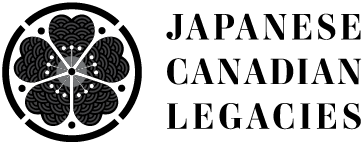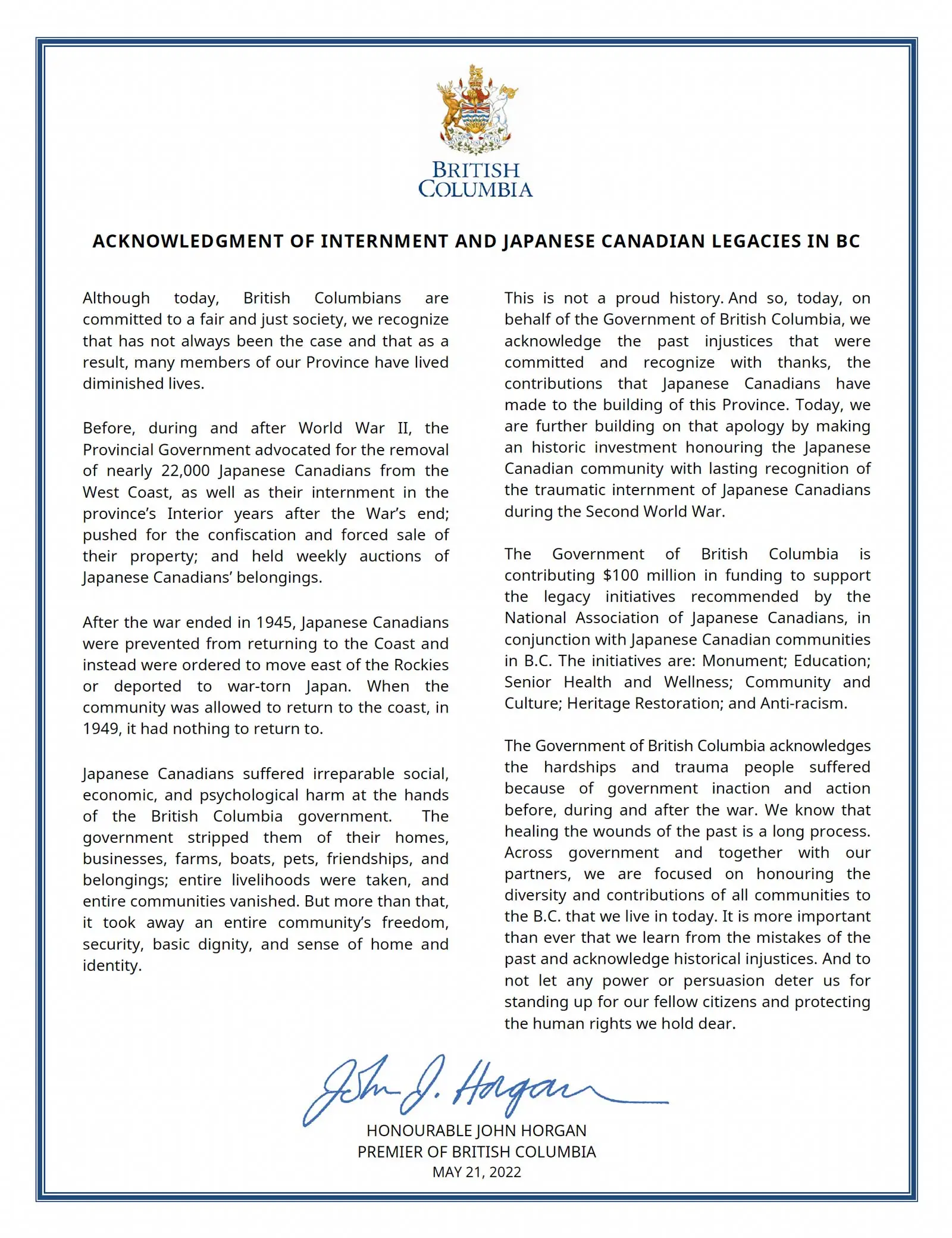About Us
BC Redress
On May 21, 2022, the BC Government made an historic announcement, marking a pivotal moment in our community, one that honours our elders past and present.
A $100million dollar commitment was announced, reflecting funding to multiple initiatives built by the NAJC BC Redress Project from March 2020 – March 2022 in a six-fold framework of education; heritage; seniors’ health & wellness; community & culture; monument; and anti-racism. These initiatives form a historical wrongs framework and were developed from comprehensive proposals which respond to community consultations, input from our organizations, solid research, and listening to those who otherwise do not have a platform to have a voice.
Premier John Horgan made the announcement at the Steveston Martial Arts Centre in front of Japanese Canadian community witnesses, many who had participated in providing input to the legacy initiatives. The witnessing event was opened with a moving land acknowledgment given by Mary Point and Cecilia Point of Musqueam. Speakers included Parliamentary Secretary for Anti-Racism Initiatives Rachna Singh; community elders Aki Horii and Mary Kitagawa. Former MLA Naomi Yamamoto who led the apology in 2012 provided context to her work with the community. NAJC remarks came from Lorene Oikawa with follow-up NAJC BC Redress Project remarks from Susanne Tabata. The event was mc’d by MLA Kelly Greene and Steveston community leader Kelvin Higo. Nine MLAs attended the witnessing event. Also witnessing were community members attending 11 viewing parties attended by MLAs, all zooming live into the Premier’s announcement. A strong showing of support came from the Tashme Historical Society in Hope; Nikkei Interment Memorial Centre in New Denver; Tonari Gumi in Vancouver; the GVJCCA, Nikkei National Museum & Cultural Centre, Sakura-so, and Nimi Nikkei Home in Burnaby; Steveston Seniors at the Community Centre in Steveston; the Central Vancouver Island Japanese Canadian Society in Nanaimo; and the Victoria Nikkei Cultural Society in Victoria.
At the time of this announcement no agreements were in place. There existed a framework package approved by the NAJC as written by the BC Redress Project’s Susanne Tabata. That package been developed from 2020 to 2022, and had been through many iterations while staying within the following pillars: education; heritage; seniors’ health & wellness; community & culture; monument; and anti-racism.
As we undertake this hard but important work, the BC Japanese Canadian community has been very strong in its support for all initiatives that honour our elders past and present, provide health support to our survivors, and deliver strong education support for both classroom and public heritage spaces.
Redressing the Internment of Japanese Canadians
The Government of British Columbia is contributing $100 million in funding to support the legacy initiatives recommended by the National Association of Japanese Canadians, in conjunction with Japanese Canadian communities in B.C. The initiatives are: education; heritage; seniors’ health & wellness; community & culture; monument; and anti-racism.
The Government of British Columbia acknowledges the hardships and trauma people suffered because of government inaction and action before, during and after the war. We know that healing the wounds of the past is a long process. Across government and together with our partners, we are focused on honouring the diversity and contributions of all communities to the B.C. that we live in today. It is more important than ever that we learn from the mistakes of the past and acknowledge historical injustices. And to not let any power or persuasion deter us for standing up for our fellow citizens and protecting the human rights we hold dear.
Acknowledgment of Internment and Japanese Canadian Legacies in BC
Although today, British Columbians are committed to a fair and just society, we recognize that has not always been the case and that as a result, many members of our Province have lived diminished lives.
Before, during and after World War II, the Provincial Government advocated for the removal of nearly 22,000 Japanese Canadians from the West Coast, as well as their internment in the province’s Interior years after the War’s end; pushed for the confiscation and forced sale of their property; and held weekly auctions of Japanese Canadians’ belongings.
After the war ended in 1945, Japanese Canadians were prevented from returning to the Coast and instead were ordered to move east of the Rockies or deported to war-torn Japan. When the community was allowed to return to the coast, in 1949, it had nothing to return to.
Japanese Canadians suffered irreparable social, economic, and psychological harm at the hands of the British Columbia government. The government stripped them of their homes, businesses, farms, boats, pets, friendships, and belongings; entire livelihoods were taken, and entire communities vanished. But more than that, it took away an entire community’s freedom, security, basic dignity, and sense of home and identity.
This is not a proud history. And so, today, on behalf of the Government of British Columbia, we acknowledge the past injustices that were committed and recognize with thanks, the contributions that Japanese Canadians have made to the building of this Province. Today, we are further building on that apology by making an historic investment honouring the Japanese Canadian community with lasting recognition of the traumatic internment of Japanese Canadians during the Second World War.
The Government of British Columbia is contributing $100 million in funding to support the legacy initiatives recommended by the National Association of Japanese Canadians, in conjunction with Japanese Canadian communities in B.C. The initiatives are: Monument; Education; Senior Health and Wellness; Community and Culture; Heritage Restoration; and Anti-racism.
The Government of British Columbia acknowledges the hardships and trauma people suffered because of government inaction and action before, during and after the war. We know that healing the wounds of the past is a long process. Across government and together with our partners, we are focused on honouring the diversity and contributions of all communities to the B.C. that we live in today. It is more important than ever that we learn from the mistakes of the past and acknowledge historical injustices. And to not let any power or persuasion deter us for standing up for our fellow citizens and protecting the human rights we hold dear.
– Honourable John Horgan, Premier of British Columbia
日本語
日本語での情報やニュースについては、こちらをクリックしてください。
Select photos from the May 21 announcement in Steveston, BC.



